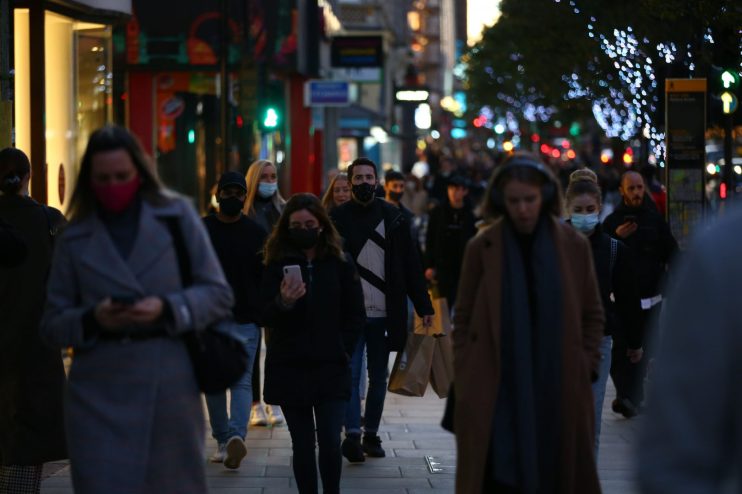Drinkers and shoppers flock to high streets to toast last night before lockdown

Drinkers and shoppers flocked to pubs and high streets yesterday ahead of the introduction of a new nationwide coronavirus lockdown in England.
The latest footfall data showed that high street visitor numbers surged 23.5 per cent on Wednesday compared to the previous week as consumers squeezed in a final pint or shopping trip before restrictions were introduced at midnight.
High street footfall was down just 15.2 per cent yesterday compared to last year, but fell to 55.3 per cent on Thursday morning, according to analysis by Springboard.
Separate data from hundreds of pubs and bars across England showed a 125 per cent jump in sales compared to Wednesday last week.
The soaring sales followed an 82 per cent rise on Tuesday and a 58 per cent increase on Monday as pub-goers sought to make the most of their local venues before the month-long lockdown was enforced.
Across the three days, the average growth in sales processed via the drinks app Orderpay was 94 per cent higher than the previous week.
Last night customers spent an average of £10.37 per transaction in the last hour before pubs were closed for the 10pm curfew, up 32 per cent on last week.
In total across Monday to Wednesday, average spend was up 20 per cent before pubs were ordered to close their doors for the second time this year.
Orderpay chief marketing officer Joe Martin said: “It’s clear ahead of the new lockdown that drinkers feel comfortable visiting and socialising in pubs and are confident with the measures operators have put in place to keep them safe since reopening.
“Our data shows people bid farewell to their local pubs in style this week.
“With the industry hoping that restrictions are lifted as planned in time for Christmas, we hope the willingness we have seen to be back socialising in the last few weeks isn’t a sign that the public have become complacent with what is still a global pandemic.
“We need to do the right thing and abide by the rules for the short term so that the industry can survive in the long term.”